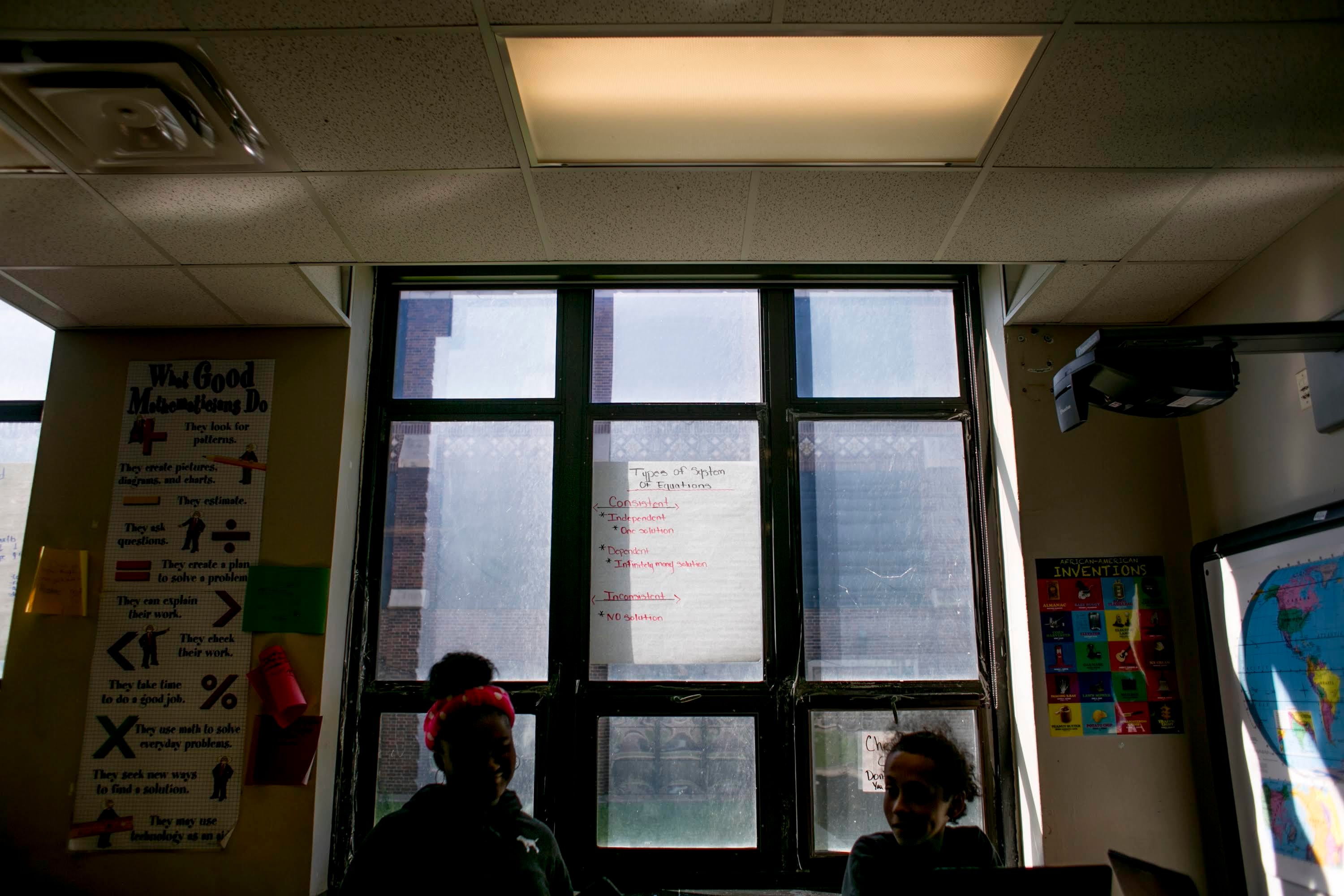Sign up for Chalkbeat Detroit’s free daily newsletter to keep up with the city’s public school system and Michigan education policy.
The Michigan Department of Education on Friday made a final legal plea for a U.S. Department of Education administrative judge to dismiss all claims that the state agency violated the rights of students with disabilities during COVID-era school closures.
Attorneys representing the MDE again questioned the enforcement authority of the federal department’s Office of Civil Rights. The MDE’s filing said lawyers for the office had “scant allegations” and accused them of performing “legal gymnastics” in the case.
Many Michigan public school students with disabilities did not get the instruction and services they were entitled to under anti-discrimination laws, such as speech language pathology and social work, a years-long federal investigation found.
The state still has not given the students mandated compensatory services, or additional assistance to help kids catch up, according to the civil rights office.
Federal officials also said the MDE repeatedly gave incorrect information about what rights students were entitled to in presentations and correspondence with parents and school districts after.
Additionally, the civil rights office said that the MDE did not have a designated employee on staff to ensure compliance with civil rights laws, as is federally mandated.
The MDE’s latest filing, a brief in support of its motion to dismiss the case last month, comes after the civil rights office accused the MDE of trying to “shield itself from scrutiny” and misunderstanding federal law.
“Schools and districts faced unique challenges during the pandemic, but students with disabilities never lost their right to equal educational opportunity under Section 504,” said a spokesperson for the U.S. Department of Education in an email. “These students deserve for MDE to make things right, and we expect the administrative law judge will decide that MDE is legally required to do so.”
In its legal filings, the state has denied any wrongdoing.
“Due to the ongoing proceeding, the Michigan Department of Education has nothing more to add to the detailed documents we filed,” said Bob Wheaton, director of public and governmental affairs for the MDE. “We remain strongly committed to providing equal access to educational opportunities to all students in Michigan – including students with disabilities.”
States that don’t comply with laws protecting students with disabilities risk losing federal funding. In the 2023-24 school year, Michigan received $461 million in federal aid for special education.
Marcie Lipsitt, a Michigan special education advocate who filed the initial complaint, said it seeks compensatory services for all students with disabilities who have either individualized education programs or Section 504 plans in the state.
IEPs indicate services that students with disabilities are entitled to, and 504 plans lay out needed accommodations for students with disabilities who do not require special education services.
Lipsitt said on Friday that the MDE’s latest response reaffirms her belief that it does not understand the federal law.
“It is clear the MDE refuses to accept responsibility for issuing unlawful guidance,” on districts’ requirements, Lipsitt said Friday.
Attorneys for the MDE said in the latest filing that the OCR is relying on “dated and unpersuasive precedent.”
Here are some of the key areas of dispute as laid out in the filing:
- The filing says that the civil rights office does not have the authority to enforce Section 504 regulations for students who are also covered by the Individuals with Disabilities Education Act. The MDE claims that authority belongs to the Office of Special Education and Rehabilitative Services, a different arm of the Department of Education. In previous court documents, lawyers for the civil rights office said that is inaccurate and that the office does have jurisdiction.
- The MDE said that the civil rights office is trying to hold it accountable for the actions of local school districts. The filing says that the civil rights office has no authority to impose supervisory responsibility on a state education agency for districts’ compliance with Section 504. In previous documents, the civil rights office cited federal cases that found states have some responsibility in ensuring district compliance.
- The MDE claims that the civil rights office has not alleged that any students were denied a free and appropriate public education or were discriminated against due to the guidance the state agency gave to districts and parents. The civil rights office previously said it is not obligated to identify individual students whose rights were violated to prove noncompliance.
- The MDE says it now has a federally mandated 504 coordinator and is in compliance with the law. The civil rights office previously said that the state did not have a coordinator for years and that the MDE updated its website to identify the coordinator one day before it filed its motion to dismiss. The civil rights office said the MDE did not give proof that any harm from the “years-long violation” had been resolved or that it won’t happen again.
Now that the MDE has made a final brief in support of dismissing the claims, an administrative law judge from the DOE will rule on the motion.
Hannah Dellinger covers K-12 education and state education policy for Chalkbeat Detroit. You can reach her at hdellinger@chalkbeat.org.
This story has been updated to include a new response from the MDE.





